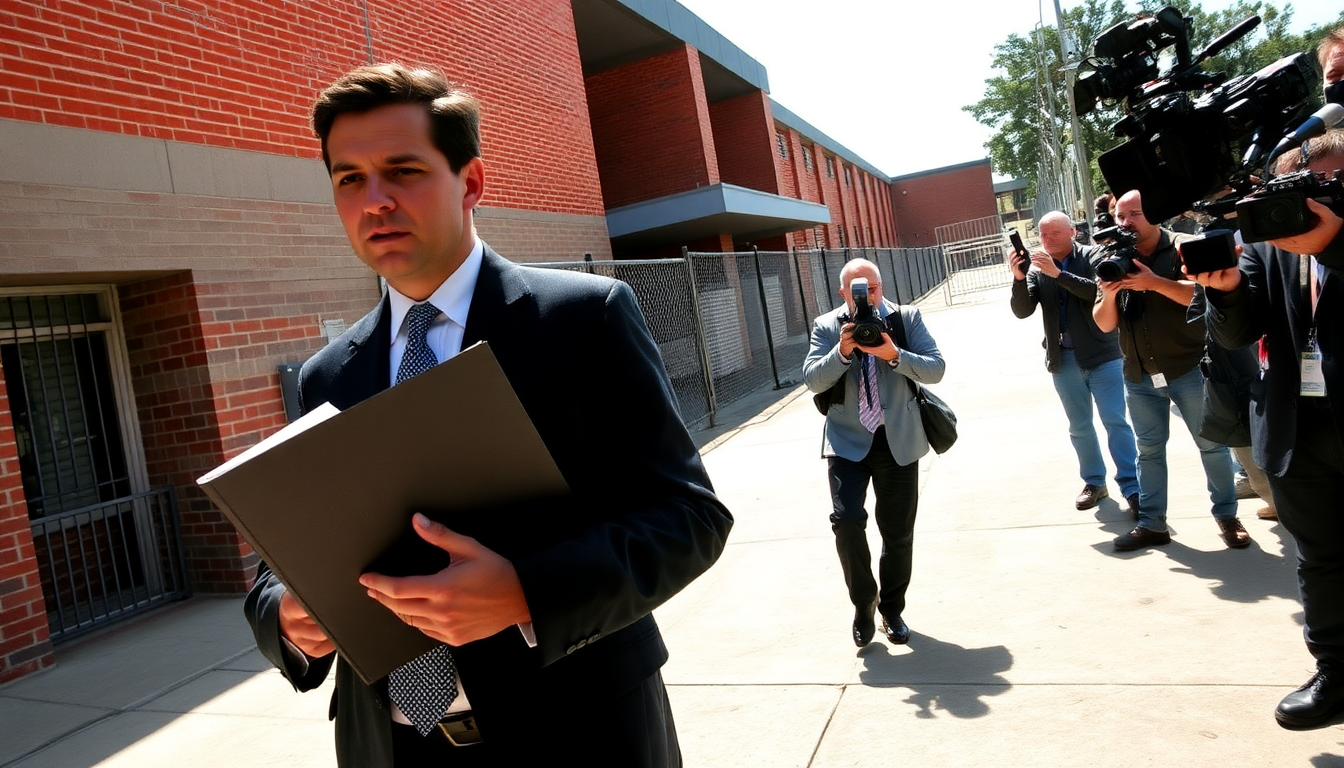Table of Contents
Ghislaine Maxwell’s legal saga has captured the public’s imagination, especially as she navigates the twists and turns of her high-profile case. Recently, she made headlines again with her transfer from a federal prison in Tallahassee, Florida, to a Federal Prison Camp in Bryan, Texas.
But what does this move mean for her and the legal landscape surrounding her? Her attorney, David Oscar Markus, has stepped up as her advocate, focusing on representing Maxwell as the ‘underdog’ in a challenging legal battle. In this article, we’ll explore the strategies her legal team is employing, the hurdles they face, and the broader implications of Maxwell’s situation.
Maxwell’s Prison Transfer: What It Means and How People Are Reacting
Maxwell’s shift to a minimum-security facility has certainly raised some eyebrows and sparked a wave of criticism about the fairness and transparency of our prison system.
Markus, her defense attorney, has defended this decision, emphasizing that such transfers are routine. “The Bureau of Prisons often moves inmates for security and safety reasons,” he stated, pushing back against claims of favoritism. Why is this perspective so important? It helps us to understand not just Maxwell’s circumstances but also the larger dynamics at play within the prison system.
In a recent interview, Markus voiced his frustration over the public’s snap judgments, urging people to take a step back and evaluate the situation more thoughtfully. “I wish I could respond to all of the critics on the merits,” he lamented, highlighting the tension between public perception and legal realities.
His dedication to Maxwell’s defense shines through as he navigates these complexities, preparing to address criticisms when the time is right. Isn’t it fascinating how public opinion can shape the narrative of a legal case?
The Crucial Role of Legal Representation in High-Profile Cases
When it comes to high-profile cases like Maxwell’s, the role of an attorney goes far beyond just legal representation. It’s about advocacy, strategic planning, and engaging with the media. Markus’s approach to defending Maxwell as an underdog underscores his belief in the power of storytelling within legal battles. He embraces the challenge of representing someone at the center of controversy, adding layers of complexity to the proceedings. Have you ever considered how a lawyer’s narrative can influence a case?
Markus faces numerous challenges, particularly with the intense scrutiny from both the public and the media. The stakes are incredibly high, and his ability to blend legal strategy with public relations is vital. As fellow attorney Mark Eiglarsh puts it, Markus is the ‘total package’—not just a brilliant and dedicated lawyer, but someone who understands the importance of humility in the legal field. This combination is essential for navigating complex cases that attract massive attention.
Looking Ahead: Future Implications and Considerations
As we look to the future, the implications of Maxwell’s case extend far beyond her immediate situation. High-profile cases like this one often set precedents that can influence public perception and legal practices in similar scenarios. The involvement of experienced attorneys like Markus, who excel in managing complex legal battles, highlights how criminal defense is evolving in the age of media scrutiny and public opinion.
As this case unfolds, it’s a unique opportunity to examine the intersection of legal ethics, media influence, and the rights of defendants. Markus’s commitment to his client will undoubtedly shape the narrative as the legal proceedings progress. Observers are eager to see how the strategies employed by her legal team might not only impact Maxwell’s future but also affect the broader landscape of legal representation in high-profile cases. What do you think will happen next?





